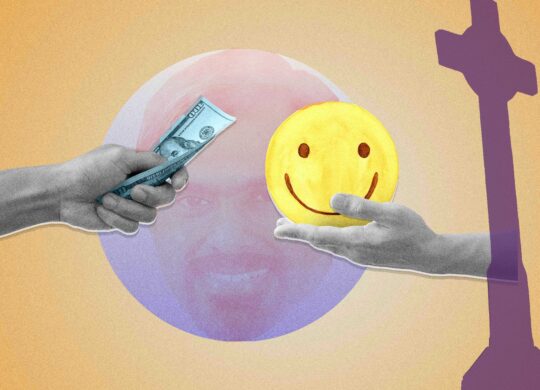Giving!

Research has consistently found that acts of altruism, such as donating money, volunteering or giving blood, benefit both the receiver and the giver—even when the giver does not expect anything in return.
In the influential 2008 article, “Spending Money on Others Promotes Happiness,” published in the highly reputed journal, Science, by psychologists from the University of British Columbia, Vancouver, and from Harvard University, they reported:
Although much research has examined the effect of income on happiness, we suggest that how people spend their money may be at least as important as how much money they earn. Specifically, we hypothesized that spending money on other people may have a more positive impact on happiness than spending money on oneself. We found that spending more of one’s income on others predicted greater happiness.”
Said lead author, Elizabeth Dunn, a professor of psychology at the University of British Columbia.
Finding joy in helping others is fundamental to who we are as a species.”
Dunn and her colleagues gave 46 participants a small amount of money ($5 or $20) and told them to either spend it on themselves or someone else. People who spent the money on someone else reported being happier than those who spent it on themselves, regardless of the amount of money.
That was a relatively small study, but Dunn and colleagues replicated the benefits of generosity in a study of 8,000 participants: “Does Spending Money on Others Promote Happiness?” in the Journal of Personality and Social Psychology. And the answer to their titular question was: “Yes!”
But American volunteering and charitable giving have been on the decline in recent years. While total estimated charitable giving in the U.S. reached over $550 billion in 2023, taking inflation into account, the number has declined from years past. Likewise showing a decrease was individual giving. Roughly 2–3% of income is the standard of giving (married people give a bit more than unmarried; those with bachelor’s degrees likewise more than those without).
Each one must do just as he has purposed in his heart,
not grudgingly or under compulsion, for God loves a cheerful giver.
2 Corinthians 9:7
Indeed, it appears that altruism actually can make you cheerful! Helping others may set up a positive feedback loop: doing good feels good, altruism can beget more altruism and better well-being.
Said Abigail Marsh, a professor of psychology at Georgetown University:
If things are hard, you often don’t feel like going out of your way to do the things that will help other people around you. But, in fact, that may be actually one of the best things you could do.”
In fact, “Altruistic Behaviors Relieve Physical Pain,” claimed psychologists from Peking University and from South China Normal University, a few years ago, in the article by that title from Proceedings of the National Academy of Sciences.
We find consistent behavioral and neural evidence that in physically threatening situations acting altruistically can relieve painful feelings in human performers.”
They showed that after an altruistic act, neuroimaging showed neural activity decreased in pain-related areas of the brain. And so, altruistic acts like donating money to orphans, helped participants feel less physical pain when given an electric shock, when compared with those who earned the money for themselves. Even cancer patients experienced a respite from chronic pain.
All that to say, as God has given to us, so we should give.
And God is able to make all grace abound to you,
so that for all things always having all sufficiency,
you may have an abundance for all good deeds.
2 Corinthians 9:8
SOURCE: MSN, PNAS, J. of Personality and Social Psychiatry












 Abe Kuruvilla is the Carl E. Bates Professor of Christian Preaching at The Southern Baptist Theological Seminary (Louisville, KY), and a dermatologist in private practice. His passion is to explore, explain, and exemplify preaching.
Abe Kuruvilla is the Carl E. Bates Professor of Christian Preaching at The Southern Baptist Theological Seminary (Louisville, KY), and a dermatologist in private practice. His passion is to explore, explain, and exemplify preaching.